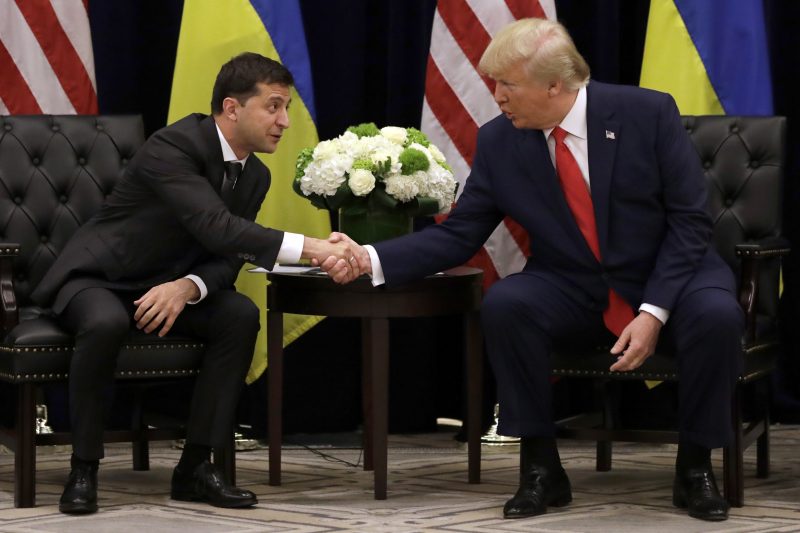Former president Donald Trump’s interview with Fox News on Sunday commenced an all-out freakout among the GOP’s Ukraine funding skeptics. They interpreted his comments as suddenly coming out in favor of potentially sending Ukraine even more than the Biden administration has.
That would be a remarkable turnabout for Trump, who just last week accused the administration of fomenting World War III by giving Ukraine cluster munitions.
But that doesn’t appear to be what Trump really said. What he did put forward was a remarkably simplistic — even nonsensical — plan to end the conflict.
Trump’s frequent boast that he would end the war within 24 hours is basically his new “build the wall and make Mexico pay for it” from 2016. It’s utterly impractical, lacks detail and is destined to be a broken promise should he assume power again. It’s a promise without anything to back it. But it’s also something his supporters seem to eat up.
He’s rarely been pressed on the details. But on Sunday, none other than his longtime Fox ally Maria Bartiromo stepped up to do just that.
And it was revealing.
Bartiromo asked Trump how he would end the war within 24 hours, and he deflected, talking about how he respected Ukrainian President Volodymyr Zelensky for not criticizing him over the situation that led to Trump’s first impeachment. But then Bartiromo sought to bring the conversation back to the question:
The Ukraine funding skeptics have, of course, focused on the part about giving Ukraine “more than they ever got.” (Florida Republican Gov. Ron DeSantis’s political action committee played up that comment.) What Trump in fact seemed to be saying was that he was going to tell that to Putin while telling Zelensky the opposite: that Ukraine was going to be cut off.
He’s talking about playing hardball. The idea is that he’s going to bluff to both sides — or at least one side (you pick which) — until they reach a deal.
Trump’s campaign responded to the DeSantis PAC by saying, “Only dumb idiots on flailing campaigns would be so desperate to make up words that weren’t even spoken.”
This is not the most robust plan to end a war. It is not three-dimensional chess from the author of “The Art of the Deal.”
Imagine a situation in which Trump were to come into office, enact this strategy, and Russia and Ukraine didn’t come to an agreement. Trump would then be put in the position of everyone knowing which side he was bluffing in favor of, or if he was bluffing with both sides.
More than that, it’s Trump telling everyone that’s he’s going to bluff before the negotiations ever begin. Generally speaking, bluffs work best when the other side doesn’t know that’s what you are doing. The most charitable version would be that Trump is going to make the two sides guess which one he’s bluffing to.
Credit to Bartiromo for actually getting Trump to offer something more about a promise that had been, up to this point, a platitude without a plan. What she revealed was nothing amounting to a thoroughly considered course of action — just a bluff that she, deliberately or not, called.

